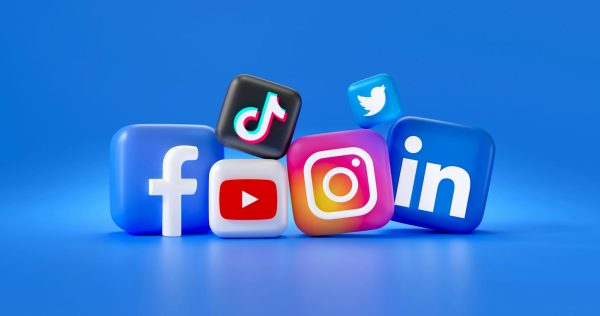Follow your true path
College isn’t the only option
We’re at the point in the school year when high school seniors across the country are frantically checking the mail. They are hoping and praying that the mailman has delivered that life-changing piece of paper: the acceptance letter to their dream school.
College, however, is not for everyone.
Some students aren’t even paying attention to the mailbox. Some are arranging to go to the military, are undecided or plan to engage in self-directed learning. The possibilities are endless in life, meaning college isn’t the only possibility out there.
All our lives, parents, teachers, and guidance counselors have drilled the idea into our heads that college is the best option. It has been made clear that if you don’t get good grades and attend a four-year college, the rest of your life will be a failure.
The point that I intend to get across is that isn’t necessarily true.
Yes, college might be the thing you want to do, depending on your career path. At the same time, I know it isn’t for everyone and those people shouldn’t be afraid to go against the wave.
Despite the status quo, there is a community of people taking a different route. People are using the real world to learn practical skills. They are exploring, volunteering, and interning with self-directed learning.
While many might see this path as extremely risky, finishing school with over $20,000-plus in debt is just as risky (if not riskier) in today’s uncertain job market.
In an article from CNBC, James Altucher, a millionaire entrepreneur, discusses how he feels that college did not prepare him for the workforce. It wasn’t until he dropped out and taught himself that he had the skills needed in order to be successful in the workforce.
¨More and more companies are even saying you don’t need a degree,” Altucher said. “You need skills. So spend those four years learning skills.”
Nowadays, entire course loads are available to you online. The amount of information on the Web is so in-depth that you have all the resources you could possibly need right at your fingertips. With educational resources like Udacity, edUx, Coursera, M.I.T. Open Courseware, and Khan Academy, you can learn entire class loads on your own.
Our generation came in believing that with a college degree, came the security of a job and the tangible skills to do it. We also came in believing that the price was bearable.
Not anymore. Now, we see students in paralyzing debt, coming out of college settling for a job they didn’t want.
If you have the flexibility to choose your own education, you also have the flexibility to choose your own life.
We should see college as a choice, not a requisite. The social norm is that we all need to go to college — but if you look through history, social norms often steer us in the wrong direction.
Life started out simple — do as you’re told. Yet, ironically, this is exactly the kind of thinking that’ll lead you to the wrong direction.
Life is what you make of it. Now, I’d argue, is the best time to take charge of your education.
If college does not feel right for you, do not rush into something that’s going to cost you big time money. Explore all of the other options first. And by doing so, you might just be taking charge of your life.
We’re at the point in the school year when high school seniors across the country are frantically checking the mail. They are hoping and praying that the mailman has delivered that life-changing piece of paper: the acceptance letter to their dream school.
College, however, is not for everyone.
Some students aren’t even paying attention to the mailbox. Some are arranging to go to the military, are undecided or plan to engage in self-directed learning. The possibilities are endless in life, meaning college isn’t the only possibility out there.
All our lives, parents, teachers, and guidance counselors have drilled the idea into our heads that college is the best option. It has been made clear that if you don’t get good grades and attend a four-year college, the rest of your life will be a failure.
The point that I intend to get across is that isn’t necessarily true.
Yes, college might be the thing you want to do, depending on your career path. At the same time, I know it isn’t for everyone and those people shouldn’t be afraid to go against the wave.
Despite the status quo, there is a community of people taking a different route. People are using the real world to learn practical skills. They are exploring, volunteering, and interning with self-directed learning.
While many might see this path as extremely risky, finishing school with over $20,000-plus in debt is just as risky (if not riskier) in today’s uncertain job market.
In an article from CNBC, James Altucher, a millionaire entrepreneur, discusses how he feels that college did not prepare him for the workforce. It wasn’t until he dropped out and taught himself that he had the skills needed in order to be successful in the workforce.
¨More and more companies are even saying you don’t need a degree,” Altucher said. “You need skills. So spend those four years learning skills.”
Nowadays, entire course loads are available to you online. The amount of information on the Web is so in-depth that you have all the resources you could possibly need right at your fingertips. With educational resources like Udacity, edUx, Coursera, M.I.T. Open Courseware, and Khan Academy, you can learn entire class loads on your own.
Our generation came in believing that with a college degree, came the security of a job and the tangible skills to do it. We also came in believing that the price was bearable.
Not anymore. Now, we see students in paralyzing debt, coming out of college settling for a job they didn’t want.
If you have the flexibility to choose your own education, you also have the flexibility to choose your own life.
We should see college as a choice, not a requisite. The social norm is that we all need to go to college — but if you look through history, social norms often steer us in the wrong direction.
Life started out simple — do as you’re told. Yet, ironically, this is exactly the kind of thinking that’ll lead you to the wrong direction.
Life is what you make of it. Now, I’d argue, is the best time to take charge of your education.
If college does not feel right for you, do not rush into something that’s going to cost you big time money. Explore all of the other options first. And by doing so, you might just be taking charge of your life.



